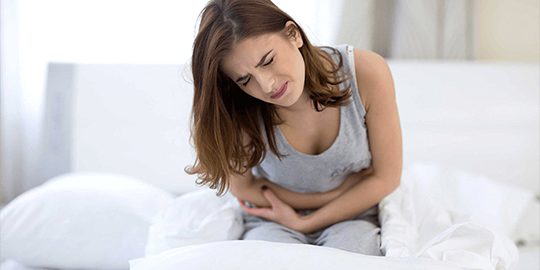A to Z Diseases
Is PCOD and PCOS same? Dr. Positive Homeopathy!
Women play an important role in the family, she is a mother, daughter, sister, wife, sister. She is the god’s creation most beautiful creation. It is said that God created Man but as he could not be everywhere he created woman. But women health issues are most often neglected mostly due to the woman herself who feels her illness or discomfort is not of major concern, secondly due to lack of understanding of female problems. Though most of the disorders affect men and women equally, there are certain disorders which affect the only woman, these include
Menstrual disorders: like
- Dysmenorrhoea or Painful menses-one of the most common woman disorder affecting almost 20-90% of women, especially young women between ages of 18- 24 years and may ease as she becomes older or gets married and have children.
Menstruation or menstrual cycle usually starts between the age of ten to fifteen years (menarche) and ceases when the woman attains forty-five to fifty years (menopause). Between menarche and menopause, the periods usually occur regularly every twenty-eight days and lasts for three to seven days. The periodic monthly cycles may take few months to set right after menarche in some and cycles may be irregular just before menopause. The regularity of the cycle and menstrual flow is maintained by few hormones chief among them being Pituitary hormones like Follicle stimulating hormone (FSH) and Luteinizing hormone (LH), the Progesterone and Oestrogen secreted by Corpus Luteum of the ovary and Prostaglandins from the uterus. Besides these hormones emotional disturbances, stress, smoking etc. also play a role in dysmenorrhoea.
Homeopathy Treatment For PCOD:
Though in many women dysmenorrhoea is only physiological and may ease by taking rest or mild analgesics in some it may be a sign of the serious pathological condition. Depending on the underlying factors for dysmenorrhoea it may be classified into:
- Primary – when there are painful menstrual cycles without any underlying cause. The main reason for dysmenorrhoea is due to excess production of Prostaglandin hormones by the uterine lining and the pain may be spasmodic in nature with or without discharge of clots.
- Secondary- where there is usually an underlying cause like Endometriosis, Adenomyosis, Uterine fibroids, Pelvic inflammatory diseases, Intrauterine devices like Copper-T, etc. The pain may begin at least 2-3 days prior to the onset of menstrual flow and may ease when the flow sets in. Bleeding may or may not be heavy depending on the underlying cause.
- Symptoms: The pain and discomfort may vary in intensity among women with some reporting that intensity of pain is so high that the very thought of an approaching monthly cycle frightens them. Some complaint of concomitant symptoms like lower back pain, headache, nausea, vomiting, and body or feet swelling; along with fatigue, irritability or depression. These symptoms may start a few days before menses (Premenstrual syndrome) in some women. Depending on the time of onset, intensity, and flow it may be classified into
- Congestive– Pain is usually dull, deep in nature and begins three to seven days prior to menses and relieved by the appearance of flow
- Spasmodic-Pain is intermittent, starts at the onset of menses and lasts for the first two to three days of menses.
- Membranous- in which along with the menstrual flow pieces of the endometrium is also shed
- Treatment– Symptoms of dysmenorrhoea can be alleviated by taking –
- Proper and balanced diet
- Reducing salt intake
- Reducing weight (if obese)
- Drinking adequate water
- Exercises and Yoga
- Reducing stress
In those with severe pain or dysmenorrhoea caused due to underlying cause need medical intervention.
- Homeopathy treatment is one of the safest and surest modes of treatment and many have benefitted from it. It’s constitutional approach not only helps to reduce the symptoms but also goes to the roots to cure the cause of it and saved many from the surgical knife.
- Menorrhagia or abnormally heavy menstrual bleeding-
It is a condition in which there is heavy menstrual bleeding. Bleeding is considered as heavy if menstrual flow lasts for more than a week, if there is passing of large menstrual clots, needs to change pad or tampon frequently including nights and symptoms of anemia like fatigue, shortness of breath sets in.
Causes for abnormal uterine bleeding is unknown in many cases but in some underlying cause behind the bleeding can be identified. In those where the cause can be identified the primary reasons were found to be:
- The hormonal imbalance between Progesterone and Oestrogen, the two main female hormones. It can occur due to any reason including Polycystic Ovarian disease (PCOD), obesity, thyroid problems, anovulatory cycles, Diabetes, etc…
- Fibroids– or benign tumors present within the walls of the uterus is one of the major cause of heavy bleeding in women of reproductive age.
- Endometriosis and Adenomyosis– a condition where the endometrium, the uterine lining which is usually shed during the monthly cycle, grows abnormally in a different location like colon, rectum, etc. and in some cases, it may protrude into the muscular walls of the uterus (Adenomyosis) causing abnormal and heavy bleeding.
- Endometrial polyp- small, benign growth in the uterine lining
- Intrauterine devices like Copper-T
- Miscarriages or abortions
- Carcinoma of uterus, ovary or cervix
- Bleeding disorders like Thrombocytopenia, Von Willebrand’s disease.
- Treatment– It is necessary to evaluate a patient with Menorrhagia to rule out any pathological cause for the same with the help of Ultrasound, hysteroscopy, PAP smear, biopsy, Dilatation and Curettage, Blood tests etc,. Depending on the cause conventional treatment includes medications like Oral pills to surgical intervention besides supplements like iron supplement in case of any anemia due to excessive loss of blood.
- Homeopathy with its constitutional approach dwells not only into the symptoms but goes depth of the disease to remove the cause of it. The medications are based on the patient’s emotional, psychological and physical makeup. The medications though small in size go to the root of the disease and help to control the symptoms and cure it without any undesired side effects.
- Metrorrhagia or intermittent bleeding-
It is a condition when there is abnormal uterine bleeding in between the periods. Usually, women with regular menstrual cycle have their periods between twenty-one to thirty-five days with average being every twenty-eight days with the flow lasting for three to seven days. Every month uterus prepares itself for pregnancy and in case it does not occur the prepared endometrial lining is shed out with the help of prostaglandin hormone. But in women suffering from Metrorrhagia they may have spotting or slightly heavier bleeding in between their periods.
Causes for metrorrhagia:
- Hormonal imbalance
- Anovulatory cycles (when ovulation does not occur)
- Endometrial polyps or fibroids
- Carcinoma of uterus or cervix
- Endometriosis
- Few infections of genital tract like genital warts etc.
- Chronic disorders like Thyroid, diabetes
- Intra uterine devices
- Certain medications like blood thinners
- Ectopic pregnancy or miscarriage
- Injury
- Treatment– It is necessary to evaluate a patient with Metrorrhagia to rule out any pathological cause for the same with the help of pelvic examination, Ultrasound, PAP smear, biopsy, Blood tests etc. Depending on the cause conventional treatment includes medications like Oral pills to surgical intervention.
- Homeopathy with its constitutional approach dwells not only into the symptoms but goes depth of the disease to remove the cause of it. The medications are based on the patient’s emotional, psychological and physical makeup. The medications though small in size go to the root of the disease and help to control the symptoms and cure it without any undesired side effects.
- Irregular Menstrual cycle
Generally, a girl reaches pubertal age between ten to fifteen years of age. After the first menstruation, it may take about one to two years for the periods to be regularized. A regular menstrual cycle is about twenty-eight days with a range from twenty-one to thirty-five days and flow lasts for 3 to 7 days. This cycle continues till it is interrupted by either pregnancy or menopause (permanent stoppage of menses). Menstrual cycle is considered irregular when there is variation in this cycle either it is before twenty-one days or beyond thirty-five days or if there is a change in the pattern of bleeding.
- Causes– The primary cause for irregular bleeding could be
- Hormonal imbalance- menstrual cycle depends on primarily oestrogen and progesterone hormones secreted by the ovary. Any imbalance in these hormones can cause irregular bleeding
- Endocrine problems like Thyroid dysfunction
- Polycystic ovarian syndrome (PCOS)
- Endometriosis
- Pelvic inflammatory disease
- Stress
- Medications like Oral pills
- Intrauterine devices
- Pregnancy and lactation
- Uterine fibroids
- Treatment– It is necessary to evaluate a patient with irregular periods to rule out any pathological cause for the same with the help of hormonal tests, pelvic examination, Ultrasound, PAP smear, biopsy, Blood tests etc. Depending on the cause conventional treatment includes medications like Oral pills to surgical intervention.
- Homeopathy with its constitutional approach dwells not only into the symptoms but goes depth of the disease to remove the cause of it. The medications are based on the patient’s emotional, psychological and physical makeup. The medications though small in size go to the root of the disease and help to control the symptoms and cure it without any undesired side effects.








